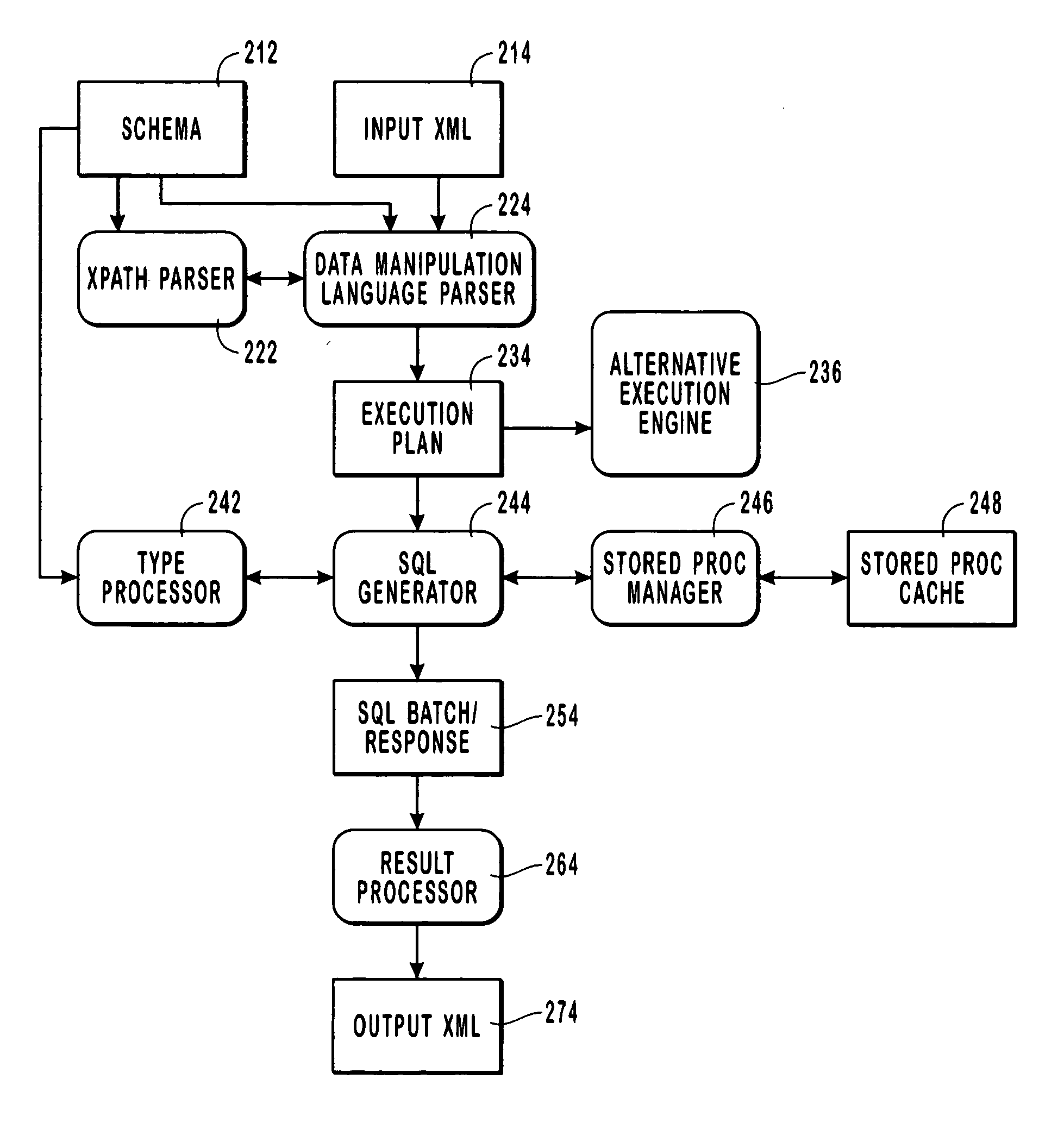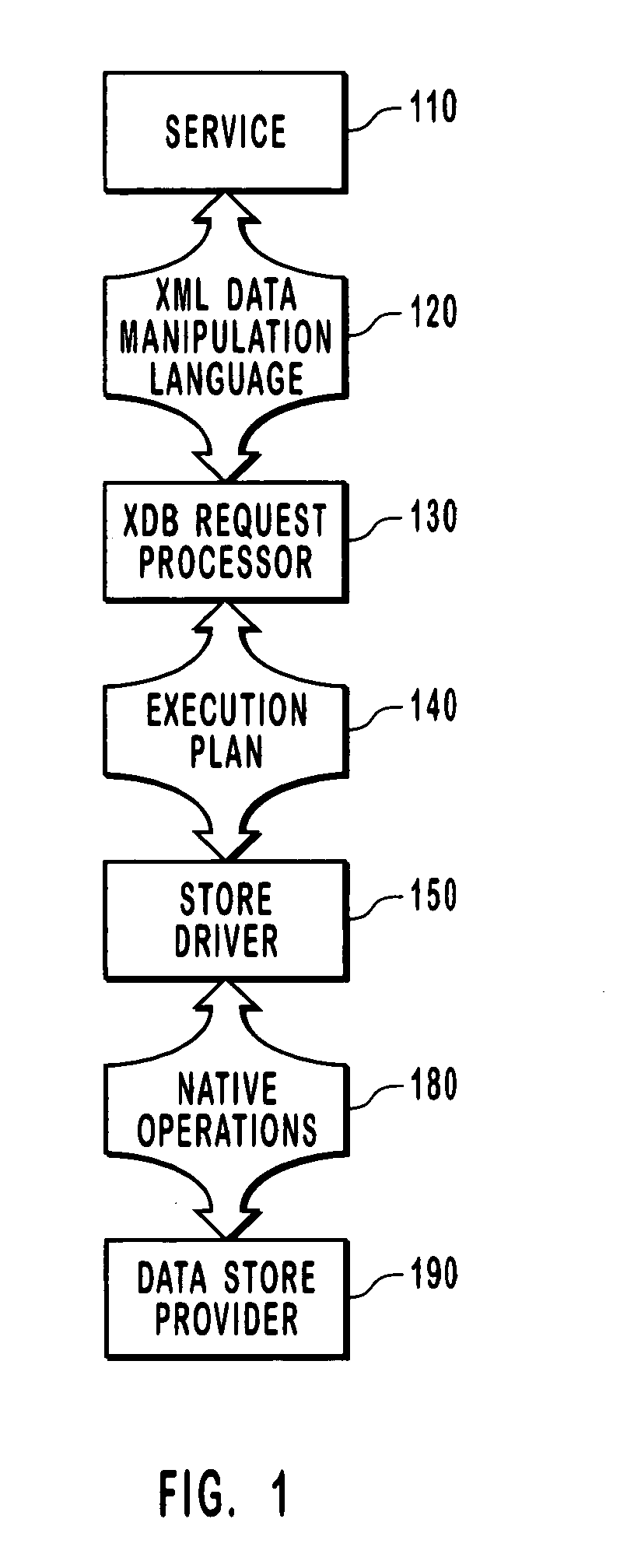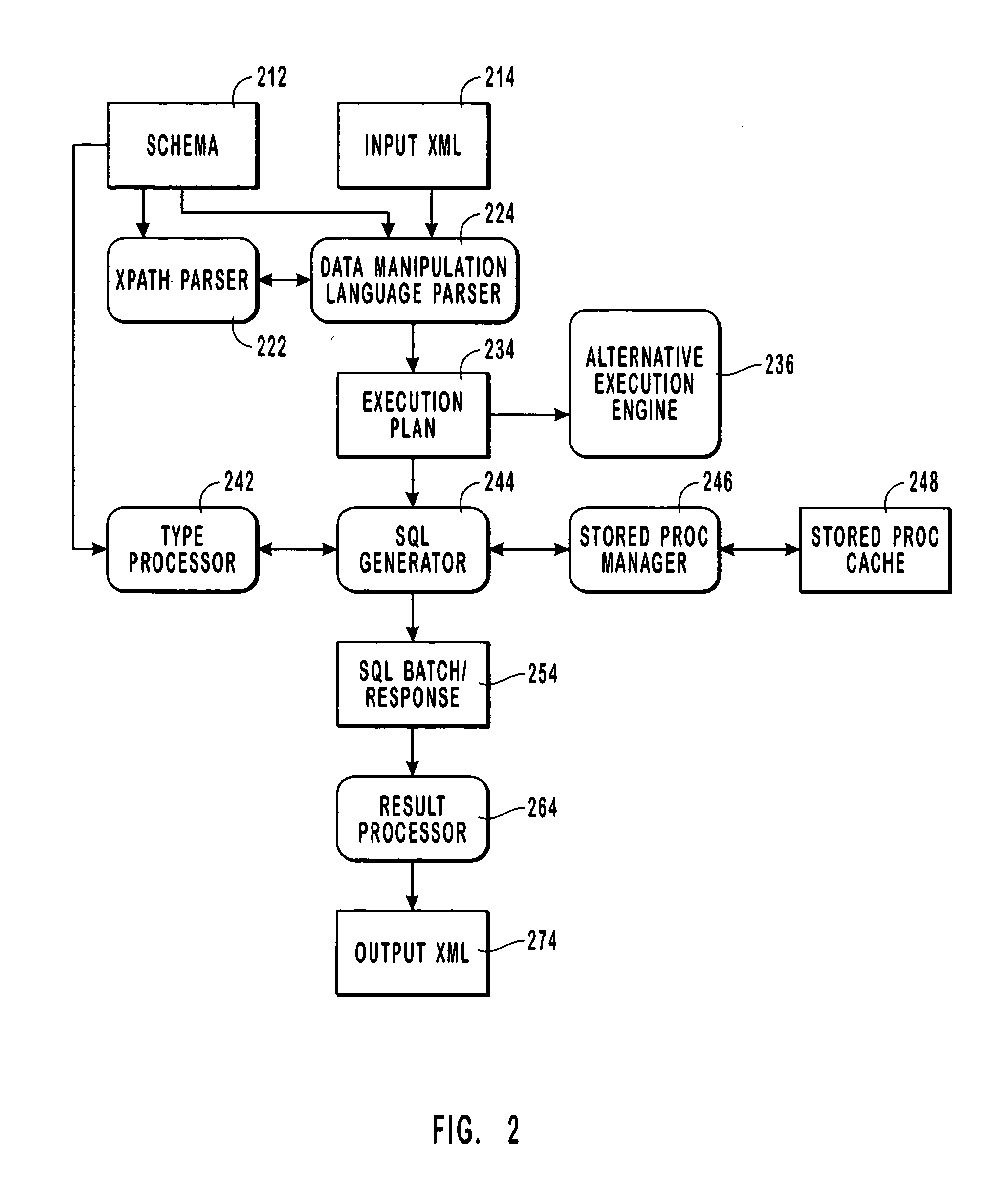Manipulating schematized data in a database
a schematized data and database technology, applied in the field of data access, can solve the problems of limiting the ability to select the most appropriate technology, introducing interdependencies, and significant resource requirements for supporting multiple native storage mechanisms
- Summary
- Abstract
- Description
- Claims
- Application Information
AI Technical Summary
Benefits of technology
Problems solved by technology
Method used
Image
Examples
Embodiment Construction
[0024] The present invention extends to methods, systems, and computer program products for accessing data where the data store provider is abstracted from the data manipulation language used to access the data and the schema that describes the data. As indicated above, eXtensible Markup Language (“XML”) may be used to define relationships for data independent of the data's underlying storage or management mechanisms. XML uses tags or markups to define data elements and attributes, whereas others schemas, such as those defining relational databases that are accessed through Structured Query Language (“SQL”) typically do not use tags or markups. It should be emphasized, however, that describing embodiments of the present invention in terms of SQL is exemplary only and should not be interpreted as limiting the invention's scope. Accordingly, as used in this application, the term “schema” should be interpreted broadly to encompass virtually any technique for describing how data is stru...
PUM
 Login to View More
Login to View More Abstract
Description
Claims
Application Information
 Login to View More
Login to View More - R&D
- Intellectual Property
- Life Sciences
- Materials
- Tech Scout
- Unparalleled Data Quality
- Higher Quality Content
- 60% Fewer Hallucinations
Browse by: Latest US Patents, China's latest patents, Technical Efficacy Thesaurus, Application Domain, Technology Topic, Popular Technical Reports.
© 2025 PatSnap. All rights reserved.Legal|Privacy policy|Modern Slavery Act Transparency Statement|Sitemap|About US| Contact US: help@patsnap.com



